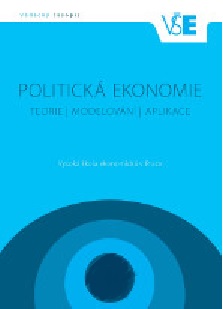Financial Stress and Effect on Real Economy: Turkish Experience
Financial Stress and Effect on Real Economy: Turkish Experience
Author(s): Anirban SanyalSubject(s): Economy, National Economy, Financial Markets
Published by: Vysoká škola ekonomická v Praze
Keywords: Financial stress index; threshold VAR model; Markov switching model; local projection; forecast error variance decomposition
Summary/Abstract: The core of this paper is an econometric estimation of the relation between financial stress anda number of macroeconomic variables (consumption, real GDP, investment, unemployment).This estimation is done on Turkish quarterly data for the period 2002–2021 using threshold vectorautoregression (i.e., TVAR). The paper observes the non-linear trade-off between financial stressand macroeconomic indicators. The effect of financial stress appears to be adverse when the stresslevel is already at a higher level. During high stress episodes, any further increase in financialstress drags economic growth down and the effect appears to be prolonged in nature. Consumptionand investment growth also moderate due to a higher stress level. Furthermore, the forecast errordecomposition indicates sustained contribution of financial stress impeding growth prospects overthe forecast horizon. The findings corroborate with the financial friction mechanism. As borrowingconstraint tightens during a high stress regime, the effect of financial stress moderates economicactivities. Lastly, the paper extends a local projection approach for estimating a threshold VARmodel as a robustness check.
Journal: Politická ekonomie
- Issue Year: 71/2023
- Issue No: 1
- Page Range: 46-67
- Page Count: 21
- Language: English

